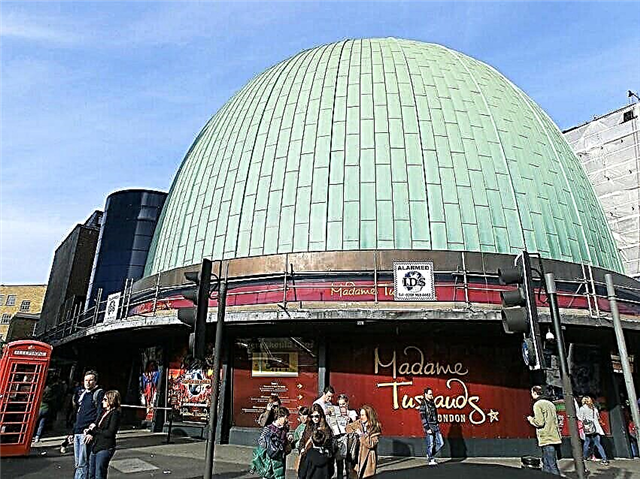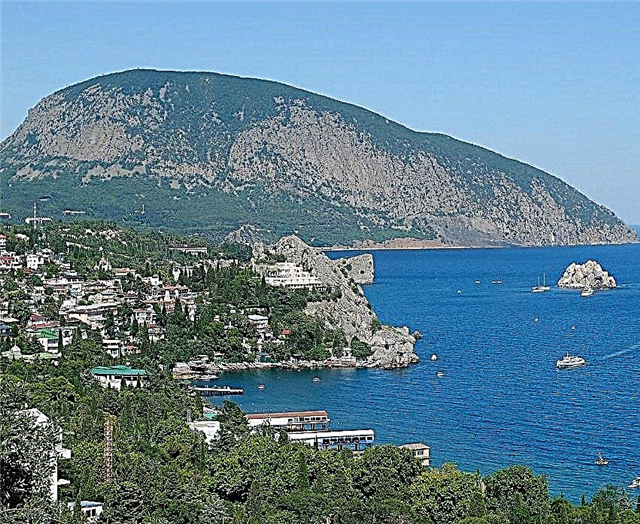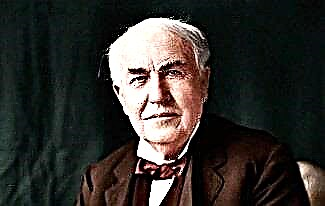Alexander Yaroslavich Nevsky (in monasticism Alexy; 1221-1263) - Prince of Novgorod, Grand Duke of Kiev, Grand Duke of Vladimir and military leader. In the Russian Orthodox Church canonized.
There are many interesting facts in the biography of Alexander Nevsky, which we will talk about in this article.
So, before you is a short biography of Alexander Nevsky.

Biography of Alexander Nevsky
Alexander Nevsky was born on May 13, 1221 in the city of Pereslavl-Zalessky. He was the son of the Pereyaslavl prince (later the prince of Kiev and Vladimir) Yaroslav Vsevolodovich and his wife Princess Rostislav Mstislavna.
Alexander had 8 brothers: Fedor, Andrey, Mikhail, Daniel, Konstantin, Yaroslav, Athanasius and Vasily, as well as two sisters - Maria and Ulyana.
When the future commander was barely 4 years old, he and his brothers underwent a ceremony of initiation into warriors arranged by his father. In 1230 Yaroslav Vsevolodovich put his sons Alexander and Fyodor on the reign of Novgorod.
3 years later, Fedor died, as a result of which Alexander Nevsky seemed to be the autocratic head of the city.
Military campaigns
Alexander's biography is closely intertwined with wars. On his first campaign, the prince went with his father to Dorpat, wishing to recapture the city from the Livonians. In that battle, the Russian soldiers defeated the knights.
Then the war for Smolensk with the Lithuanian army began, where the victory went to the army of Alexander Yaroslavovich. On July 15, 1240, the famous Battle of the Neva between the Swedes and the Russians took place. The first tried to master Ladoga, but they did not succeed in achieving their goal.

Alexander's squad, without the help of the main army, defeated the enemy at the confluence of the Izhora and Neva rivers. It was after this historic victory that the Novgorod prince began to be called Alexander Nevsky.
An interesting fact is that the existence of the battle is known only from Russian sources, while in the Swedish chronicles there is not a single mention of the battle. The first source of mention of the battle is the Novgorod First Chronicle, dated to the 14th century.
According to this document, having received news of the offensive of the Swedish fleet, the 20-year-old Novgorod prince Alexander Yaroslavich quickly moved his small squad and local people against the enemy before he reached Lake Ladoga.
However, after the triumphant battle, the Novgorod boyars began to fear the growing influence of Alexander. Through various intrigues and intricacies, they managed to ensure that the prince went to Vladimir to his father.
Soon, the German army went to war against Russia, occupying the Pskov, Izborsk, Vozhsky lands and the city of Koporye. As a result, the knights approached Novgorod. This led to the fact that the boyars themselves began to beg Nevsky to return and help them.
In 1241 the commander arrived in Novgorod. Together with his retinue, he liberated Pskov, and on April 5, 1242, a historic battle took place on Lake Peipsi, better known as the Battle of the Ice. Alexander confronted the Teutonic Knights, who were well prepared for battle.

Realizing that the enemy was much better armed, the Russian prince went for a trick. He lured enemies clad in heavy armor onto thin ice. Over time, the ice could not withstand the heavy ammunition of the Germans and began to crack.
The Teutons began to drown and scatter around in panic. However, the Russian cavalry attacking from the flanks successfully stopped any attempts to escape. After the end of the Battle of the Ice, the knightly order abandoned all recent conquests.
Nevertheless, despite the victories over the Livonians, the Novgorodians did not take any action to advance westward towards Finland or Estonia.
After 3 years, Alexander Nevsky liberated Torzhok, Toropets and Bezhetsk, which were under the control of the Lithuanians. Then he overtook and completely defeated the remnants of the Lithuanian army.
Governing body
After Alexander's father died in 1247, he became the prince of Kiev. At that time, Russia was under the yoke of the Tatar-Mongol yoke.
After the Livonian invasion, Nevsky continued to strengthen the North-West of Russia. He sent his envoys to Norway, which led to the conclusion of a peace treaty between Russia and Norway in 1251. Alexander led his army towards Finland, where he successfully defeated the Swedes, who made another attempt to block the Baltic Sea from the Russians in 1256.
Nevsky turned out to be a prudent and far-sighted politician. He rejected the attempts of the Roman curia to provoke a war between Russia and the Golden Horde, since he understood that at that time the Tatars had much greater power. In addition, he realized that he could count on the support of the Horde if someone tried to challenge his authority.
In 1252, Andrei and Yaroslav, brothers of Nevsky, went to war against the Tatars, but were completely defeated by them. Andrey even had to flee to Sweden, as a result of which the principality of Vladimir passed to Alexander.
The role of Alexander Nevsky in history is assessed by experts in different ways. Although the commander regularly defended his lands from Western invaders, he at the same time unquestioningly obeyed the rulers of the Horde.

The prince often visited Batu, assuring him of his support. In 1257 he even visited Novgorod with the Tatar ambassadors to assure the Horde of his help.
Moreover, when Vasily, the son of Alexander, opposed the Tatars, Nevsky ordered him to be exiled to the Suzdal land, and instead of him, Dmitry, who was barely 7 years old, should be imprisoned. For this reason, the policy of the commander is often regarded as treacherous.
In 1259, Alexander Nevsky, by means of threats of the Tatar invasion, persuaded the Novgorodians to collect tribute to the Horde. This is another act of Nevsky, which does not honor him.
Personal life
In 1239, the prince took as his wife the daughter of Bryachislav of Polotsk named Alexander. In this union, the couple had a girl Evdokia and 4 boys: Vasily, Dmitry, Andrey and Daniel.
There is a version according to which Nevsky had a second wife - Vassa. However, a number of historians believe that Vassa is the monastic name of his wife Alexandra.
Death
In 1262 Alexander Nevsky went to the Horde, wishing to prevent the planned Tatar-Mongol campaign. It was caused by the murders of the Horde tribute collectors in a number of Russian cities.
In the Mongol Empire, the commander fell seriously ill, and returned home barely alive. Shortly before his death, Alexander made a monastic vow under the name of Alexis. Such an act, along with the constant refusal of the Roman clergy to accept Catholicism, made the prince a favorite among Russian clergy.
Alexander Nevsky died on November 14, 1263 at the age of 42. He was buried in Vladimir, but in 1724 Peter the Great ordered the reburial of the prince's remains in the St. Petersburg Alexander Nevsky Monastery.
Photo by Alexander Nevsky

















